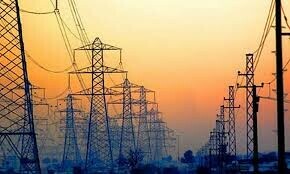KARACHI: Both local and foreign banks in Pakistan have been maximising their investments in government papers, according to the latest State Bank (SBP) report.
It shows that five big banks’ over 86 per cent, and foreign banks’ 100pc investments are in government securities.
The government papers, mostly Pakistan Investment Bonds (PIBs), are popular with banks as they helped them boost profits. The SBP said on Thursday that in July-September quarter the banks earned Rs176bn, a rise of 44pc year-on-year, while their investment increased by 148pc.
According to SBP’s compendium (September), the banks from big to medium and small sizes have over 85pc investments in government securities while the total investment in government papers has gone up to 89pc. The investment jumped by 17pc in the third quarter of this calendar year.
The latest cut of 50 basis points in the policy rate has raised the price of PIBs while the yield started falling drastically.
“In the last four weeks, Pakistan local currency bonds (PIBs) have posted abnormal gains amid expectations that interest rate will fall further and government’s demand for long-duration bonds at high rates will decline,” said a research report of Topline Securities. The yield of actively traded two-year PIB after touching a high of 12.5pc on Aug 19 is now 10.6pc, it added.
Similarly, three-year bond yield is down 185bps to 10.65pc. The yield of five-year PIB is now 10.8pc from 12.9pc, and that of 10-year PIB is 11.8pc from 13.4pc almost nine weeks ago.
Bankers believe that the government would continue to issue bonds as it still needs financing from banks. In the auction of PIBs held on Nov 19, the government picked up Rs150bn against a target of Rs50bn, indicating the rising need of liquidity.
Though banks are profitable, the fact that the government has been the only major borrower for the last six years has practically destroyed the country’s banking industry.
The foreign banks followed the same path as reflected from the SBP report; their 100pc investments were in the government papers.
Their advances to public sector till September 2014 were just 0.2pc and advances for private sector were 1.5pc.
In the first nine months of this year, local investors and banks invested a record Rs2.2 trillion in the PIBs.
Another report of the State Bank shows the total holdings of PIBs by the banks till end of October were Rs2.335tr while total PIBs issued so far were Rs3.514tr.
The banks will be the key beneficiaries of this rally in government bonds, as they have converted a large portion of their T-bills into PIBs.
The difference between one-year T-bills and three-year PIBs reached 250bps compared to average of 50bps in the last five years.
At the end of third quarter, the State Bank said, the stress test results showed that capital base of the system is strong enough to withstand unusual shocks due to credit, market and liquidity risks.
Published in Dawn, November 23rd, 2014












































